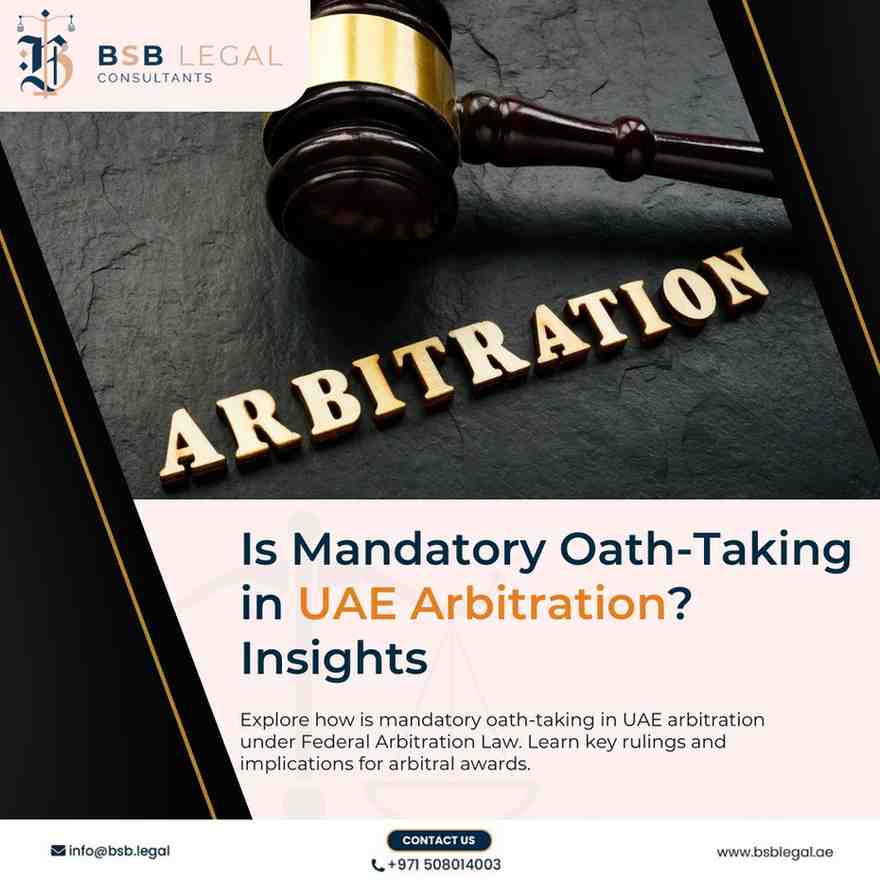


Explore how is mandatory oath-taking in UAE arbitration under Federal Arbitration Law. Learn key rulings and implications for arbitral awards.
In the realm of arbitration within the United Arab Emirates (UAE), a recent string of legal judgments has reignited the debate over the necessity of oath-taking for witnesses. Specifically, the focus has been on whether oath-taking in UAE arbitration remains obligatory in arbitration proceedings conducted under Law No. 6 of 2018, also known as the UAE Federal Arbitration Law (FAL). Let’s delve into the intricacies of this issue & explore the insights provided by these legal rulings.
Prior to the enactment of the FAL in 2018, the UAE’s arbitration landscape operated under the framework of the UAE Arbitration Chapter. This chapter mandated witness evidence, both factual and expert, to be tendered under oath. However, with the introduction of the FAL, which omitted the explicit oath-taking requirement, speculation arose regarding the continuation of this practice. Some commentators argued that while the FAL did not expressly mandate oath-taking, underlying provisions of UAE law, particularly those pertaining to evidence, still necessitated it.
Recent rulings by the Dubai Court of Cassation have brought much-needed clarity to the debate surrounding oath-taking in UAE arbitration. Case Nos. 78 and 96/2022 presented the court with an opportunity to address the issue directly. The court’s deliberations emphasized several key points:
The Dubai Court of Cassation scrutinized the interplay between the FAL and existing laws, particularly those related to evidence. Despite the FAL’s silence on the matter, the court underscored that witness testimony must align with the laws in force in the UAE. This encompassed adherence to provisions governing oath-taking as outlined in the UAE Law of Evidence.
Through its rulings, the Dubai Court of Cassation affirmed the mandatory nature of oath-taking in UAE arbitration, akin to the requirements under the pre-FAL era. It stressed that while the FAL might not explicitly mandate oath-taking, its provisions do not negate the obligations imposed by existing UAE laws, especially those concerning evidence.
Significantly, the court’s decisions underscored the repercussions of failing to administer oaths to witnesses. In cases where witness evidence was pivotal to the arbitration award and lacked proper oath-taking, the court deemed the award invalid. This underscores the critical importance of adhering to oath-taking requirements to safeguard the integrity and enforceability of arbitral awards.
In light of the Dubai Court of Cassation’s rulings, it is evident that oath-taking remains a cornerstone of arbitration proceedings in the UAE, despite the absence of explicit provisions in the FAL. For parties engaging in arbitration seated in the UAE, it is imperative to adopt meticulous practices, including:
While the FAL may have introduced changes to the arbitration framework in the UAE, the foundational principles of oath-taking endure. Parties involved in arbitration proceedings must heed the guidance provided by lawyers or top law firms in Dubai.
